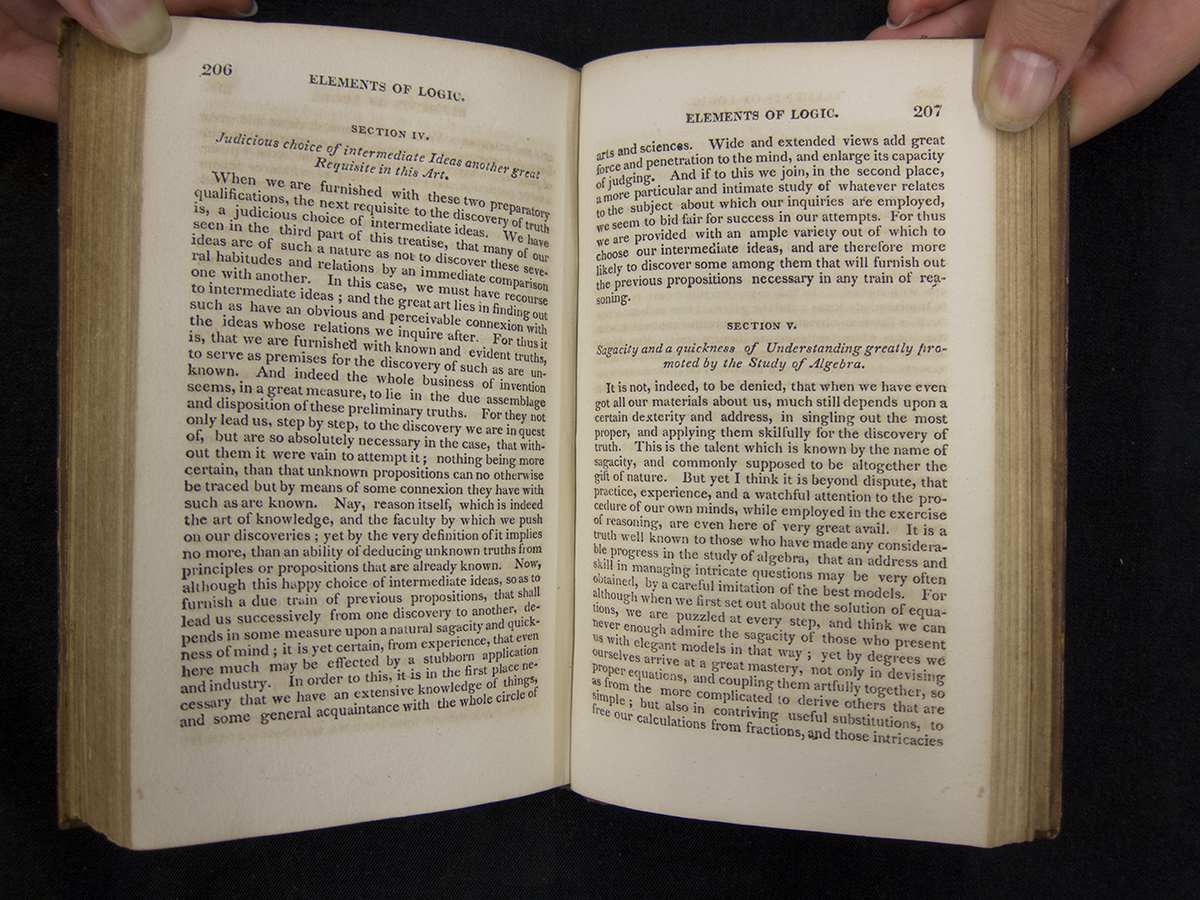- About MAA
- Membership
- MAA Publications
- Periodicals
- Blogs
- MAA Book Series
- MAA Press (an imprint of the AMS)
- MAA Notes
- MAA Reviews
- Mathematical Communication
- Information for Libraries
- Author Resources
- Advertise with MAA
- Meetings
- Competitions
- Programs
- Communities
- MAA Sections
- SIGMAA
- MAA Connect
- Students
- MAA Awards
- Awards Booklets
- Writing Awards
- Teaching Awards
- Service Awards
- Research Awards
- Lecture Awards
- Putnam Competition Individual and Team Winners
- D. E. Shaw Group AMC 8 Awards & Certificates
- Maryam Mirzakhani AMC 10 A Awards & Certificates
- Two Sigma AMC 10 B Awards & Certificates
- Jane Street AMC 12 A Awards & Certificates
- Akamai AMC 12 B Awards & Certificates
- High School Teachers
- News
You are here
Mathematical Treasure: Logic for American Independence

Figure 1. Title page of the 1811 edition of William Duncan's Elements of Logic, originally published in 1748
William Duncan (1711-1760) was a Scottish philosopher and Professor of Natural Science at Marischal College, Aberdeen, Scotland. In 1748 he published The Elements of Logic in Four Volumes, which became a popular text on the discipline of logic. This work was adopted in the early colleges of America. Thomas Jefferson, when he studied at William and Mary College (1760-1762), used Duncan’s Logic and later retained a copy of the work in his personal library. It is believed that its instruction may have influenced the composition of the Declaration of Independence (Golden & Golden, p. 47). The title page for the 1811 edition is shown above.

Figure 2. On page 143, Duncan considered the moral implications of argumentation.

Figure 3. Here on page 207 the author endorsed the study of algebra as a means to strengthen one's ability to think logically.
Reference
James Golden and Alan Golden, Thomas Jefferson and the Rhetoric of Virtue, Rowan & Littlefield, Landen, Maryland, 2002.
Acknowledgment
These images are presented courtesy of Archives and Special Collections, Dickinson College, Carlisle, Pennsylvania. You may use them in your classroom and/or for private study. For all other purposes, please obtain permission from Archives and Special Collections, Waidner-Spahr Library, Dickinson College, Carlisle, PA.
Frank J. Swetz (The Pennsylvania State University), "Mathematical Treasure: Logic for American Independence," Convergence (February 2014)




